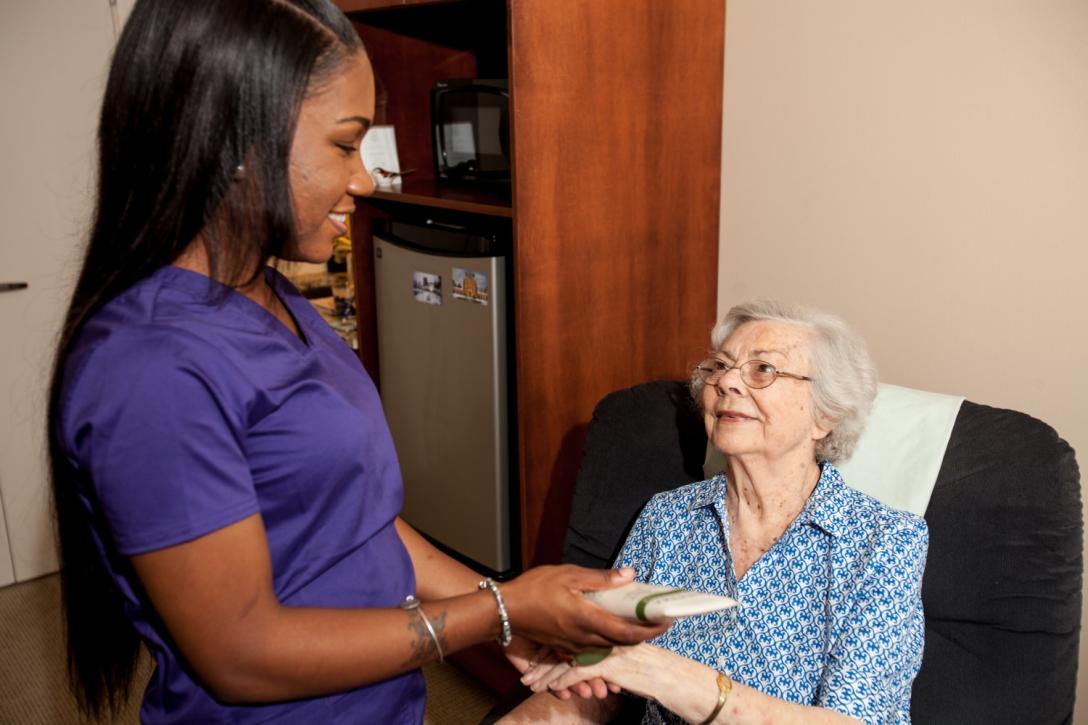Everyone has different opinions about how to best meet the needs of aging family members. When living independently is no longer possible, seniors must choose whether to move in with family members, hire an in-home caregiver or transition to a senior living community.
“The next steps families take have emotional, financial and health-related implications,” says Judy Given, Senior Director of Campus Development at Abe’s Garden Community. “This is a personal decision, and it’s important to have a thorough understanding of the advantages and disadvantages of your options.”
This article will cover the pros and cons of two options: aging in place with family, and moving into an assisted living community.
An Intergenerational Household
Some families desire to live together when their senior parents need extra support. Sometimes this is rooted in a sense of obligation or responsibility for one another. The thinking seems to be, “After all, we’re family.” Though it’s a common choice, sometimes this can override practical considerations.
Of course, in ideal situations, aging in place with family can be fulfilling for several reasons:
- Older adults often feel a sense of belonging with their family.
- New and old traditions can be easily shared.
- Adult children may have greater peace of mind with their parents close.
- Different generations have a chance to bond.
- Senior family members may contribute to the household financially.
The Risks of Family Caregiving
If intergenerational living is an attractive solution for your family, it’s important to think about what obstacles you might face. Everyone needs their own privacy, space, and some control over their circumstances. Living intergenerationally can put a strain on relationships. For example, if one family member is taking care of another, this can lead to caregiver burnout.
Here are some questions you should discuss before you make this leap:
- What rules and boundaries do we need to establish?
- Does the living space accommodate everyone’s needs?
- How will the needs of all individuals change in the coming years? How will this affect the family’s quality of life?
- Are all parties committed to open and honest communication?
- If caregiving responsibilities begin to affect a family member’s physical or mental health, can we agree on next steps?
The responsibilities of in-home caregiving can change as time goes by. A senior’s level of care can intensify. A home may need unexpected accessibility upgrades. A family member’s capacity to care for their loved one may change.
Since these changes are unpredictable, you could find yourself at a crossroads again soon. Choosing assisted living as your initial course of action prevents you from having to make a second transition.
High-Quality, Personalized Care in Assisted Living
Some seniors may worry that a move into assisted living will limit them in some way. In truth, senior living prioritizes your unique needs and lifestyle preferences.
- Healthcare services, including medication management and assistance with activities of daily living, promote your dignity and independence.
- Medical alert systems and nursing services ensure safe and timely responses to a fall or medical emergency.
- Wellness centers provide physical and occupational therapy and support your physical and mental health goals.
The Benefits of Assisted Living Facilities
Fostering positive and beneficial intergenerational relationships doesn’t require a shared living environment. In fact, family bonds can be preserved and even strengthened when seniors choose to live in assisted living. When you choose assisted living sooner, no family member is left with caregiving responsibilities that can interfere with family dynamics.
Other advantages of moving into a senior living community include:
- When you consider all that’s included, especially meals and the complete package of services and amenities, senior living could save your family money.
- Your loved one will have their own private residence with a floor plan and features to support their needs.
- Senior living communities provide transportation services for errands and outings.
- Your loved one will enjoy senior living enrichment programs that offer recreation, socialization and continued wellness.
- Housekeeping and laundry services provide a leisurely and convenient lifestyle.
Make Your Home at Abe’s Garden Community
Abe’s Garden Community provides independent living, in-home care, assisted living, and memory care in Nashville, Tennessee. Contact us today to learn how your loved one could thrive in our assisted living community.

